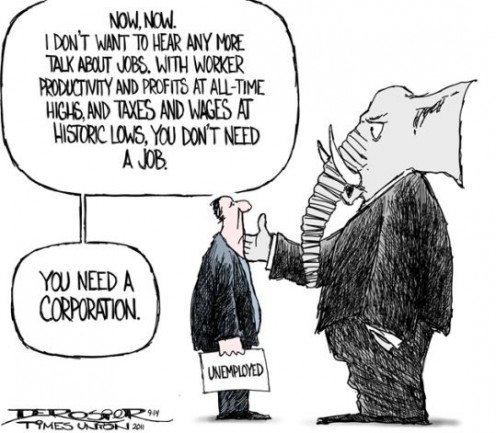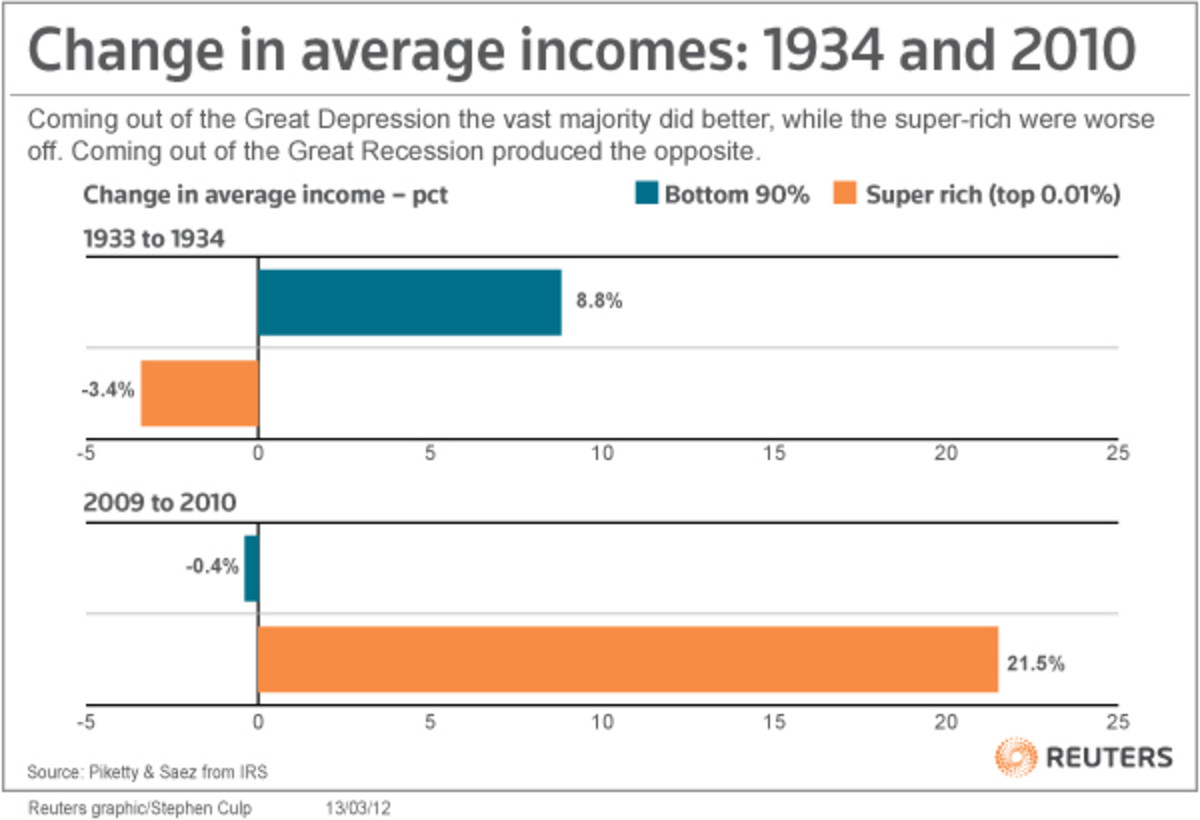The Senate Conservatives Killed President Obama's Jobs Bill - Why? (updated 10-21-2011) [93*9]
JOB? I DON"T NEED NO JOB!

Who the H*** Knows!
CYNICS MIGHT SAY because they desperately want the economy to fail so that it will be easier to fulfill their singular campaign promise - to make Obama a one-term president. Others might say because Conservatives are out of touch with reality and with America and are only listening to themselves. What is certain, they didn't do it for the good of the country!
What the Obama Jobs Plan Is
What does the Obama Jobs Plan consist of? Mostly money that will make its way immediately into the economy and therefore have an immediate actual or probable impact on jobs.
- $35 billion to the States, $30 billion for teachers salaries and $5 billion for first responder salaries. The idea is to stop the massive state layoffs of these employees or to hire them back. To the degree states are able to hire back workers, this will create jobs but the main impact will be to stop the layoffs. There are two immediate results from this part, 1) a lessening of the strain on the unemployment rolls and 2) an infusion of $35 billion directly into economy, which, after recirculation, may be worth between $40 and $50 billion.
- $50 billion into existing and new infrastructure projects. This part translates directly into new jobs immediately, so long as these projects actually ARE shovel-ready this time. This alone might be worth between 500,000 to 750,000 new jobs and have about a $75 billion impact on the economy
- $35 billion into modernizing schools. Just like the infrastrucure funding, this translates immediately into new jobs, maybe 300,000 to 500,000 of them. The real dollar economic impact might be up to $50 billion.
- $15 billion, equal to about $22 billion in economic terms, for hiring contruction workers to refurbish foreclosed homes and businesses. This might generate about 200,000 jobs.
- $10 billion to capitalize an infrastructure bank that will fund infrastructure projects paid for with private and public funds. This translate into long-term job creation.
- $254 billion in payroll tax cut for qualifying businesses and individuals. The piece that goes to individuals will have no impact on the economy other than to stop money from coming out of it if the previous tax cut were stopped. The part that goes to businesses is new; some of which may make its way back into the economy and hopefully not into the owners savings account.
- $62 billion into training programs for low-income youth to help make them more competitive for jobs. This may help reduce unemployment when the economy finally heats up.
The Conservative Jobs Alternative
Below are the points of the Conservative "New Jobs Through Growth Act" which is supposed to be introduced into the Senate the week of Oct 17,2011:
- Repeal of Obama Care - the claim is it will same many jobs in the future.
- Passage of the Balanced Budget Amendment - there is no claim of job creation or savings. However, because of its extremely disruptive nature on the activities of Congress, there is a high likelihood it will lead to job loss. (I am writing a hub on the intrinsic dangers of a Balanced Budget Amendment, but the bottom-line is that it will leave Congress looking much like a modern day Continental Congress) - probable future negative impact on jobs, no immediate positive impact
- Repeal of the Dodd-Frank financial reform bill - Conservatives claim, via a banking industry trade and lobbying group, the Financial Services Round Table, that this bill will cost thousands of jobs in the future. - no immediate impact on jobs
- Reduce marginal tax rate on wealthy to 25% - theoretically this additional money, if any, available to the wealthy may go back into the American economy in a productive way, but, there is no guarantee that it will; one can only hope and cross your fingers and toes that the super rich will be ethical enough to spend this new found wealth in such a way as to help America out of economic mess; if they do, it will be a first, however. - uncertain impact on jobs
- Reduce corporate tax rate to 25% - see the comments for the marginal tax rate on the wealthy - uncertain impact on jobs
- Revamping tax credits and deductions to keep the tax changes "revenue neutral" - it is not clear how much of the revamping of tax credits and deductions will be on the backs of the not wealthy to pay for the wealthy's tax cut. - uncertain impact on jobs
- Pass a Presidential line-item veto authority; an authority which has already been ruled unconstitutional in 1998 - no impact on jobs
- Offer a corporate "tax vacation" in order to entice corporations to repatriate approximately $1.4 Trillion they have squirreled away in off-shore accounts. - See comments on lower corporate tax rate although this has more potential to translate into jobs if corporations cooperate - uncertain impact on jobs
- Reign in EPA enforcement of environmental regulations - increase pollution and uncertain impact on jobs although it might increase them
- Curtail lawsuits brought by injured medical patients against doctors and hospitals. - no impact on jobs
That is the Conservatives plan to get America back to work today.
I really don't think I need to do a compare and contrast since the two approaches are so starkly different. Obviously, my opinion is that the Obama plan will get more Americans back to work sooner than the Conservative's plan will, if it ever does.
NOW, HOW DO YOU FEEL?
OCTOBER 20, 2011 UPDATE
Today, the Senate voted on one part of President Obama's Jobs Bill; providing States funding to hire back or prevent more lay-offs of teachers and first responders. It was to be paid for by a piddling 1/2 percent increase in taxes on the wealthy. The obvious consequences to the funding is less crime, or at least no rise in crime, and decreasing the strain on our already over-burdened and faltering education system. All 47 Conservatives and Republicans, plus two Conservative Democrats and one Independent said it is OK to let crime rise and our children's education suffer so that the wealthy don't have to pay a dime more in taxes. The vote was 50-50 to bust the Conservative filibuster; it failed.








